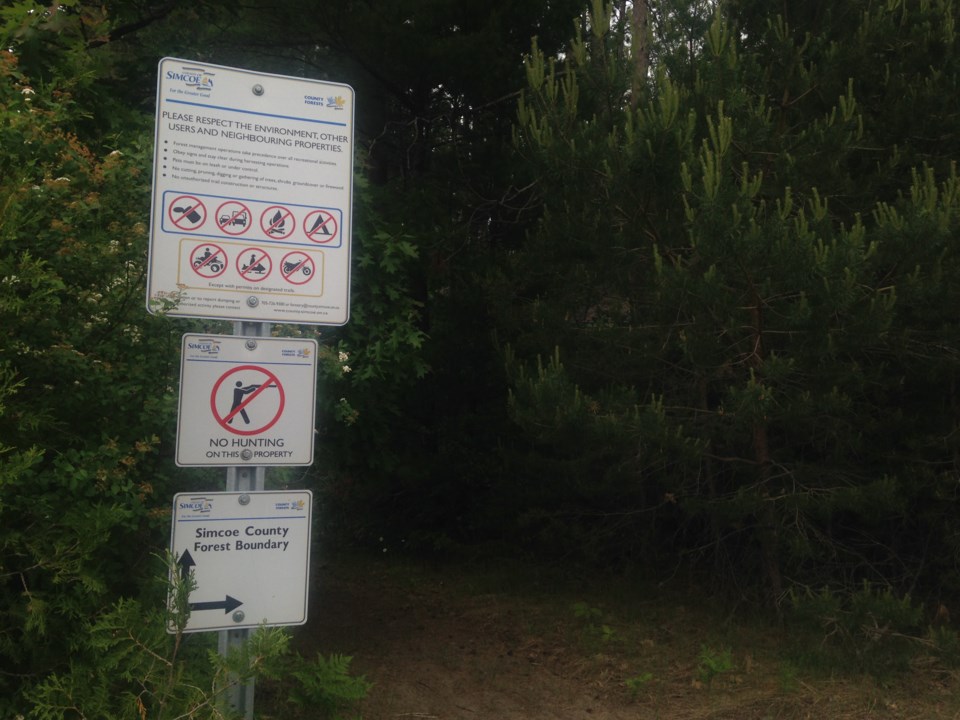If the Métis Nation of Ontario wants to talk about harvesting trees in Simcoe County’s forests, it’ll have to pay its representatives’ mileage, county councillors decided Tuesday.
Forestry staff invited the Métis to discuss harvesting rights and how to assist individuals who have a “harvester’s certificate”, which allows them to take, for their own use, assets from public lands.
The Métis responded they would like to meet, but they would do so only if the county picks up an estimated $1,318 bill for the first meeting and expenses related to follow-up meetings, said the county’s engineering, planning and environment general manager Debbie Korolnek.
Although the county consults with local aboriginal partners – the Beausoleil First Nation, the Chippewas of Rama First Nation, Georgina Island First Nation and the Huron-Wendat First Nation – the county has never reimbursed anyone for costs.
The projected $1,318 in costs are due to some Métis Nation of Ontario members travelling from as far away as Owen Sound, said Korolnek, whose portfolio includes forestry.
“For them, it’s an important issue and they may be want to set the standard elsewhere in Ontario. You’re right – this could set a precedent for other First Nations groups.”
The District of Muskoka, she added, does not reimburse travel time and costs.
In looking into the matter, Korolnek also found out that Ontario gave the Métis an $8.4-million grant, to be spent over four years. She didn’t know, however, how the money is to be spent or whether those coming to discuss forestry matters could access funds.
Collingwood Mayor Sandra Cooper said the Métis asked Collingwood for a meeting and asked their expenses to be paid.
“Our response back was we didn’t have the budget for it. We ended up we didn’t pay anything (to have a meeting),” Cooper added.
The county included the Métis in organics processing facility (OPF) discussions and did not pay, although asked.
“They’re now insisting if we move forward, they receive payment,” said Korolnek.
She said the county could use money in a special projects fund to pay the expenses.
In Manitoba, the provincial government earmarked $5 million for consultations with First Nations, Warden Gerry Marshall added.
But Ramara Deputy-Mayor John O’Donnell suggested the Métis may have no right to harvest in county forests.
“Simcoe County forests are not crown lands. They were paid for by taxpayers of this municipality,” he said of the 32,000 acres the county has acquired since 1922 and continues to restore and mange the working forests. The county has a management plan for the forests, sells timber and encourages passive recreational activities, such as hiking, orienteering, geocaching, snowshoeing and horseback riding as well as nature study.
At the annual Association of Municipalities of Ontario conference this summer, the county will ask to meet with the provincial and federal aboriginal affairs ministers to find out more about grants and funding for meetings with First Nations groups.
The Métis Nation of Ontario is the group that represents about 15,000 registered Métis in Ontario, Korolnek added.
